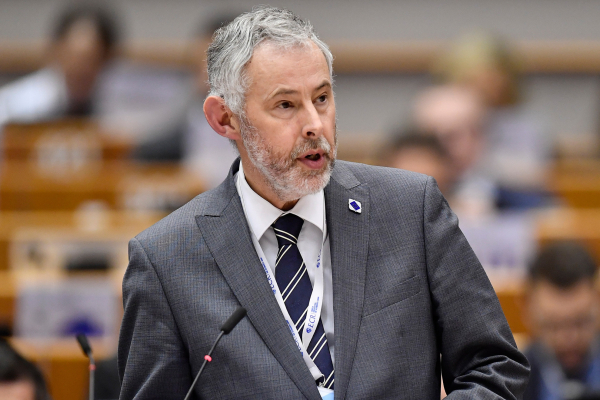
ECR First Vice-President Mr Rob Jonkman urged European Commission Vice-President Maroš Šefčovič to show people, businesses, and local authorities, that the EU is capable of reducing red tape and unnecessary bureaucracy during a debate on strategic foresight and the European Commission's Work Programme 2021. Mr Jonkman highlighted that "people, businesses, but also local and regional authorities, must see that the EU is capable of not only adding regulations, but also relieving them from administrative burdens".
Mr Jonkman, an Alderman of the Opsterland municipality in the Netherlands, first addressed
Vice-President Maroš Šefčovič, responsible for Interinstitutional Relations and Foresight, on the issue of the gravity of economic repercussions caused by the COVID-19 pandemic. He described the arrival of the virus on European doorsteps as a "ruthless appearance" which "in its path of destruction has caused one of the greatest economic fallouts the world has ever experienced".
At the same time, climate change was also acknowledged by Mr Jonkman as an "undeniable threat". However, when you line climate change and economic recovery up together, which should take precedence? He put that question to Mr Šefčovič adding that "revenue losses of EU companies are estimated in the range of 13-24% of EU GDP".
"What is the priority? Ensuring a swift recovery from the pandemic that has inflicted hardship in every single EU region, or pushing through the costly climate laws that take centre stage in the Commission's Work Programme 2021?"
Mr Jonkman then evoked the topic of better regulation underlining that he is very much looking forward to the European Commission communication on this issue expected to be adopted in mid-December. For him, it is crucial that the EU cuts back on regulations and red tape and launches the 'one-in, one-out' approach. Mr Jonkman referred to the ECR political group who he says "has been calling for the 'one-in, one-out' approach for many years" and now "we feel that these calls have finally been listened to".
However, he concluded his intervention by emphasising that "to make this a reality, the "one in one out" principle will need to be applied coherently in all policy domains and for all EU legislation".
The debate took place as part of the European Committee of the Regions' December plenary.

